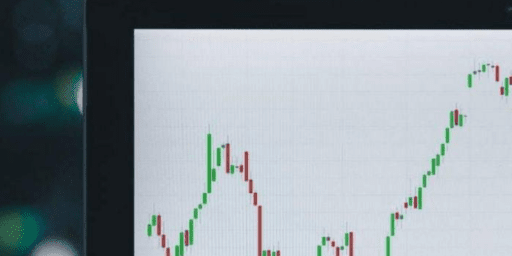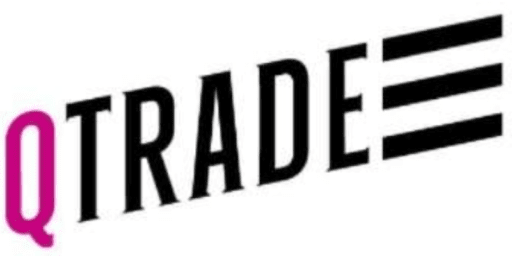Best Canadian Inflation Stocks for Hedging Investments
Should you worry about re-working your whole portfolio around the idea of choosing the best Canadian inflation stocks?
Probably not.
Of course that’s easier said than done as we proceed through stubborn inflation trends in 2026.
When we started 2022, inflation was only being mumbled about by a very small cohort of market experts (shout out to Larry Summers). We then proceeded to see central banks fall further and further behind the inflation curve, before finally realizing that they had to raise interest rates at the fastest pace in decades.
Consequently, all the fancy tech stocks of yesteryear collapsed and investments such as our list of Best Canadian Dividend Stocks (which had previously looked kind of boring) were being looked at as inflation hedge assets.
This year has seen a resurgence of some tech stocks (mostly AI-related), but in terms of stable, consistent overall performance, boring cash-flowing companies with strong balance sheets continue to hold my attention. While we have seen some welcomed cooling of inflation over the last year from 9%, to 4.3%, the labour market is still looking pretty hot.
I think that we might be putting up with inflationary pain (along with accompanying interest rate hikes) for longer than we thought, as the Bank of Canada tries to wrestle those inflation numbers closer to the 2% target.
I think that if you’re looking for the best stocks that do well in 2025’s inflationary environment, then you may want to look at the value stocks found in our Dogs of the TSX 2026 article.
Also, full credit to Mike Heroux and his Dividend Stocks Rock platform for making it so easy for me to compare various dividend stock metrics and to take in his free webinars every couple of months.
What Is Inflation and What Makes a “Best Inflation Hedged Investment”?
Before we get to what are the best inflation stocks for 2026, let’s take a step back for a second and do a quick snapshot of how we ended up here.
Inflation is the gradual increase in the monetary price of goods and services. There are many graduate-level courses in business and economics that go into the study of inflation, but here are a few truths that most econo-nerds hold to be self-evident at the moment.
1) Despite a lot of smart people studying inflation, we probably don’t know much about it yet – and we are pretty sure about that much because we’re terrible at predicting where inflation and interest rates will go in the future.
2) Generally, inflation is MUCH better than deflation.
3) We just spent the last decade really really worried about deflation – and did everything we could to avoid it.
4) Most central banks around the world aim for a gradual inflation rate of 1-3%. There are many reasons why this gradual inflation rate is a good thing. Ideally, steady, stable economic growth appears to be correlated with this level of moderate inflation.
5) High levels of inflation (let’s say in the 8-15% range) are typically pretty bad for an economy and for its citizens’ standard of living.
6) North of 15% and we start to get into talks of hyperinflation, and that’s the sort of thing that leads to economic collapses and world wars.
7) We’re currently at a 4-5% annual rate of inflation, and while the math is tricky, that number is much closer to 3% than 15%+.
So that’s what the talking heads on TV mean when they say “inflation”. Also, keep in mind that when reporters make statements such as, “Inflation went up at a rate of 5% in September,” it probably means something different from what you might think.
What they should say (but they don’t because most people quit reading or turn off the news when nerdy economic stuff starts being discussed) is:
Prices went up a little bit this month. We measured how much the prices went up on a whole bunch of goods and services. In some areas, certain goods or services went up a lot – in other areas they didn’t go up much at all. On average, across all the areas, products, and services – prices went up .42%.
If prices go up at that rate for 12 months, our inflation rate for the past year will be 5%. Depending where you live or what you bought this month, it might feel like inflation was higher or lower for you, because this number is an average.
Ok… so prices are going up a little faster than they used to, and it’s probably for the best if they don’t go up so fast.
The question for most people reading this article is: ok, so rising prices kind of suck, but are there any investments that make more money during inflation?
Well… maybe.
Assumptions based on past periods of inflation can give investors a good idea about how to limit their risk in case high inflation sticks around. This limiting of risk is what’s known as a “hedge”. The idea is that you’re “hedging” (protecting) yourself from a specific event or circumstance.
There is a tradeoff for this inflation investment strategy of course – if persistent high inflation doesn’t stick around you’re likely to trail the overall market returns. Many risk-averse investors are ok with limiting their ceiling in order to hedge against an inflation risk (especially if they believe that risk is a massive one).
We’ve written articles in the past about stock hedging strategies and using option trading to hedge profit in the past. Here, we’ll talk specifically about the best way to protect yourself against inflation and hyperinflation.
What to Invest to Hedge Inflation
What we can do in order to make an educated prediction about which sectors will perform best during this period of high inflation is to look to the past. We can also make reasonable judgements based on what a higher-inflation Canada might look like as far as interest rates and government support go.
Perhaps the biggest factor in predicting the best inflation investments is to look at the monetary policy the Canadian Government is likely to roll out.
With Bank of Canada Governor Tiff Macklem stating at the end of 2022 that we weren’t yet finished raising interest rates in order to fight inflation.
While there are numerous “2nd tier effects” that may or may not occur from inflation and the accompanying government response, we’re pretty sure about the following:
- The higher interest rates go, the worse it is for companies with a lot of debt. (Usually this means higher growth corporations.)
- The higher interest rates go, the more room banks have to make money on deposits vs loans.
- The more prices rise the more it will hurt companies in competitive industries that have a hard time passing increased costs along to consumers.
- The more price protection – the wide moat Canadian stocks for instance – that companies have (aka: Oligopolies) the easier they can simply raise prices right alongside costs going up.
- Companies that take their value from commodities or hard assets are generally good stocks for inflation due to the fact their underlying assets retain value efficiently.
- Canadians have more savings than at any time before, and the higher inflation goes, the more money they will lose having it sit in a chequing account – there will be very strong incentives to spend sooner rather than later.
So then, which inflation hedge stocks am I targeting?
Best Canadian Inflation Stocks in 2026
1) Canadian Banks. Canadian bank stocks are my investment safety blanket. They have proven time again to be very safe, and very effective at passing costs on to an accommodating Canadian consumer base.
There’s a lot of reasons after all why several bank stocks ended up on best dividend stocks in Canada list, and why they continue to dominate the Canada Dividend Kings chart year after year!
It’s tough to go wrong with any of the Big Six Banks, but I concur with Dividend Stocks Rock analyst Mike Heroux in selecting RBC, National Bank, and TD as my current “best in class”.
2) Canadian telecom stocks such as Bell and Telus. Safe oligopolies that can seamlessly pass along increased costs are the perfect descriptor of Canada’s telecom sector. Given that Rogers finally completed their acquisition of Shaw Communications this year, we’re going to see even more pricing power accumulate to the “Big 3” Canadian telecoms.
I simply think these companies are about as recession proof as you can get, because phones are going to be the last things many people give up!
3) Canadian National Railway. Moving shipping containers has never gotten so many front page headlines! Count me in as an investor that wasn’t sad to see their potential acquisition of a large American railway fall through, and then have management reveal that going forward their focus will be on maximizing the efficiency of their current assets.
Getting paid to move goods is a good line of work to be in for the foreseeable future – especially when you only have one other competitor! See more in our best Canadian railway dividend stocks article.
4) HXT = the Entire Canadian Market! Ok, so I’m cheating a bit here by adding an ETF to a best inflation stocks list – but the truth is that while there are good arguments to be made for the consumer goods, energy, and materials sectors in Canada, I’m just not as confident I can pick the real winners in this scenario right now.
We’ve seen oil prices start to trend downward into $70 territory so far in 2023. Indeed, this is a big reason why general inflation has come down. While that’s still a very profitable price for Canadian oil companies, it does obviously mean that profits will be reduced by last year’s bonanza.
Some are hopeful that OPEC’s recently announced Saudi volume cut will stabilize prices back up at $80+. Canada’s gold companies have fared slightly better with gold sniffing the $2,000 per ounce mark this year.
Several of Canada’s other commodity-drive companies are fairly inflation proof just due to the nature of supply-and-demand in commodity markets. I’m just not sure which of these commodities is going to benefit the most going forward. Consequently, owning the entire market makes more sense to me.
The relatively prominent REITs and consumer staples on the TSX aren’t likely to hurt you much either.
What I am more confident in is saying that Canada is very well positioned to – if not benefit from inflation – then at least suffer the least. That why my inflation ETF for Canada of HXT is just a plain vanilla Canadian index fund.
We simply don’t have nearly as many of the high-growth companies (with valuations in nosebleed territory) as many other developed countries do, including the USA.
Our current CAPE ratio and P/E ratio appear to reveal that while there probably aren’t many companies “on sale” in the Great White North, relative to other stock markets around the world we’re likely fairly priced by historical standards – with excellent prospects to experience lower volatility in the short- and medium-term.
Consequently, if you’re really worried about inflation, simply increasing your portfolio allocation to Canada is probably a solid bet.
Best Investments for Inflation – FAQ
Bottom Line – Stocks That Do Well In Inflation
While there is an argument to be made for investing in hard assets such as real estate when it comes to investing with inflation in mind, I think the evidence currently points to boring old top Canadian dividend stocks as the best inflation investments at the moment.
When you look at the incredibly strong competitive position that companies such as BCE, Telus, TD, RBC, NB, and CNR have, as well as their rock-solid balance sheets, it’s tough to deny their long-term value in an inflationary environment.










I would add CSU.TO to this list a time proven stock super resiliant